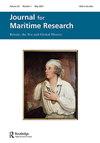谁需要英雄?巴里·昂斯沃斯的《失去尼尔森》
Q3 Arts and Humanities
引用次数: 0
摘要
巴里·昂斯沃斯的小说《失去的纳尔逊》(1999)以英雄文化遗产、集体记忆的陷阱、悲伤和失去为主题。这也是一部关于书写和再现历史的危险的小说。安斯沃斯主要被描述为一位历史小说家。在《失去纳尔逊》中,他探索了史学和英雄崇拜,将它们作为话语实践带入叙事。小说的主人公查尔斯·克利斯比(Charles Cleasby)是海军上将纳尔逊勋爵(Lord Nelson)的狂热崇拜者,他正在写一本新的传记,正如他所希望的那样,是一部结结性的传记。然而,他遭受了严重的写作障碍,他试图澄清纳尔逊的生活和政治事实,这使他陷入了更深的个人和心理危机。克利斯比一生都在纪念纳尔逊。随着剧情的发展,他的英雄崇拜变得狂热,严重损害了他的日常社交能力。他过着隐居的生活,只有冒险参加纳尔逊俱乐部的会议,并定期用模型船重现纳尔逊的战斗。查尔斯·克利斯比试图揭示纳尔逊在那不勒斯帕台诺帕共和国的暴力结束中所扮演的角色,他发现纳尔逊可能并不像他一直认为的那样完美。克利斯比强烈希望为海军上将开脱罪责,甚至把他带到了那不勒斯,在那里他发现纳尔逊没有被纪念,而是被视为敌人,甚至可能被视为战犯。相反,帕台诺帕共和国的领导人之一弗朗西斯科·卡拉乔洛(Francesco Caracciolo)获得了荣誉。“世上没有英雄,克利斯比先生,有的只是恐惧、梦想和虚构的过程,”一位当地图书管理员告诉查尔斯·克利斯比。然而,克利斯比无法改变他的观点,他对纳尔逊的狂热崇拜导致了小说黑暗的结局。《失去纳尔逊》不太关注对一个人的批评,也不太关注对纳尔逊神话的解构。相反,小说探索了英雄化过程的条件,以及历史写作框架内英雄的表现。随着叙述者的可靠性,历史资料的可靠性,获得这些资料的问题,以及解释的权力和权威,都被尖锐地凸显出来。《失去纳尔逊》将自己作为一篇文章纳入了英雄主义的话语中,而这些话语并没有随着小说的结尾而结束。这篇文章的存在本身就指出了这样一个事实,即像纳尔逊上将这样的英雄人物对个人、社会和政治的影响为文化社区提供了辩论价值观和应对变化的机会。从这个意义上说,昂斯沃斯从事的是一个突出和问题化的过程,而不是神话解构。本文章由计算机程序翻译,如有差异,请以英文原文为准。
Who needs a hero? Barry Unsworth’s Losing Nelson
ABSTRACT Barry Unsworth’s novel Losing Nelson (1999) takes up the themes of heroic cultural heritage, the pitfalls of collective memory, and grief and loss. It is also a novel about the hazards of writing and re-presenting history. Unsworth has been primarily described as a historical novelist. In Losing Nelson he explores historiography as well as hero-worship, bringing them to the narrative as discursive practices. The protagonist of the novel, Charles Cleasby, is an avid admirer of Admiral Lord Nelson, and in the process of writing a new biography, the conclusive biography, as he hopes. However, he suffers from serious writer’s block, and his attempts to clarify facts about Nelson’s life and politics lead him into an even deeper personal and psychological crisis. Cleasby has devoted his whole life to the commemoration of Nelson. As the narrative progresses, it turns out that his hero-worship is fanatical, seriously damaging his ability of everyday social interactions. He lives the life of a recluse, only venturing out for meetings of the Nelson club and regularly re-enacting Nelson’s battles with model ships. Trying to shed light on Nelson’s role in the violent end of the Parthenopean Republic of Naples, Charles Cleasby finds that Nelson might not have been as perfect as he always took him to be. Cleasby’s fervent wish to exonerate the Admiral from blame even leads him to Naples, where he finds that Nelson is not commemorated, but seen as enemy and, potentially, as a war criminal. Instead, Francesco Caracciolo, one of the leaders of the Parthenopean Republic, is honoured. “There are no heroes out there, Mr Cleasby, there are only fears and dreams and the process of fabrication,” a local librarian tells Charles Cleasby. However, Cleasby is unable to shift his perspective, and his fanatic adoration of Nelson leads to the novel’s dark conclusion. Losing Nelson is concerned less with the critique of one individual, or the deconstruction of the Nelson myth. Rather, the novel explores conditions of heroisation processes, and the representation of the heroic within the framework of history writing. Together with the narrator’s reliability, the reliability of historical sources, questions of access to them, and the power and authority of interpretation are thrown into sharp relief. Losing Nelson inscribes itself as a text into discourses of the heroic which do not end with the novel’s ending. The very existence of the text points to the fact that the individual, social, and political impact of hero figures like Admiral Nelson provide opportunities for a cultural community to debate values and react to changes. In that sense, Unsworth engages in a highlighting and problematising process rather than in myth-deconstruction.
求助全文
通过发布文献求助,成功后即可免费获取论文全文。
去求助
来源期刊

Journal for Maritime Research
Arts and Humanities-History
自引率
0.00%
发文量
0
期刊介绍:
The Journal for Maritime Research ( JMR ), established by the National Maritime Museum in 1999, focuses on historical enquiry at the intersections of maritime, British and global history. It champions a wide spectrum of innovative research on the maritime past. While the Journal has a particular focus on the British experience, it positions this within broad oceanic and international contexts, encouraging comparative perspectives and interdisciplinary approaches. The journal publishes research essays and reviews around 15-20 new books each year across a broad spectrum of maritime history. All research articles published in this journal undergo rigorous peer review, involving initial editor screening and independent assessment, normally by two anonymous referees.
 求助内容:
求助内容: 应助结果提醒方式:
应助结果提醒方式:


